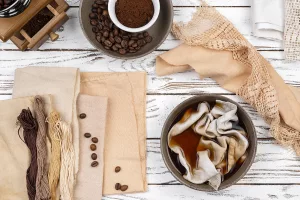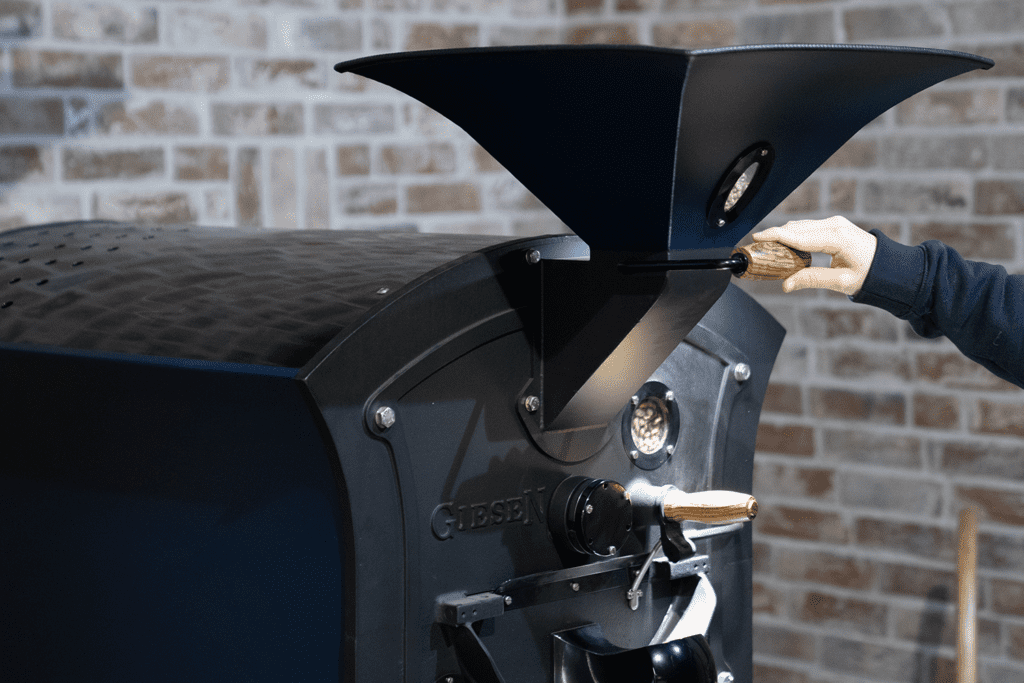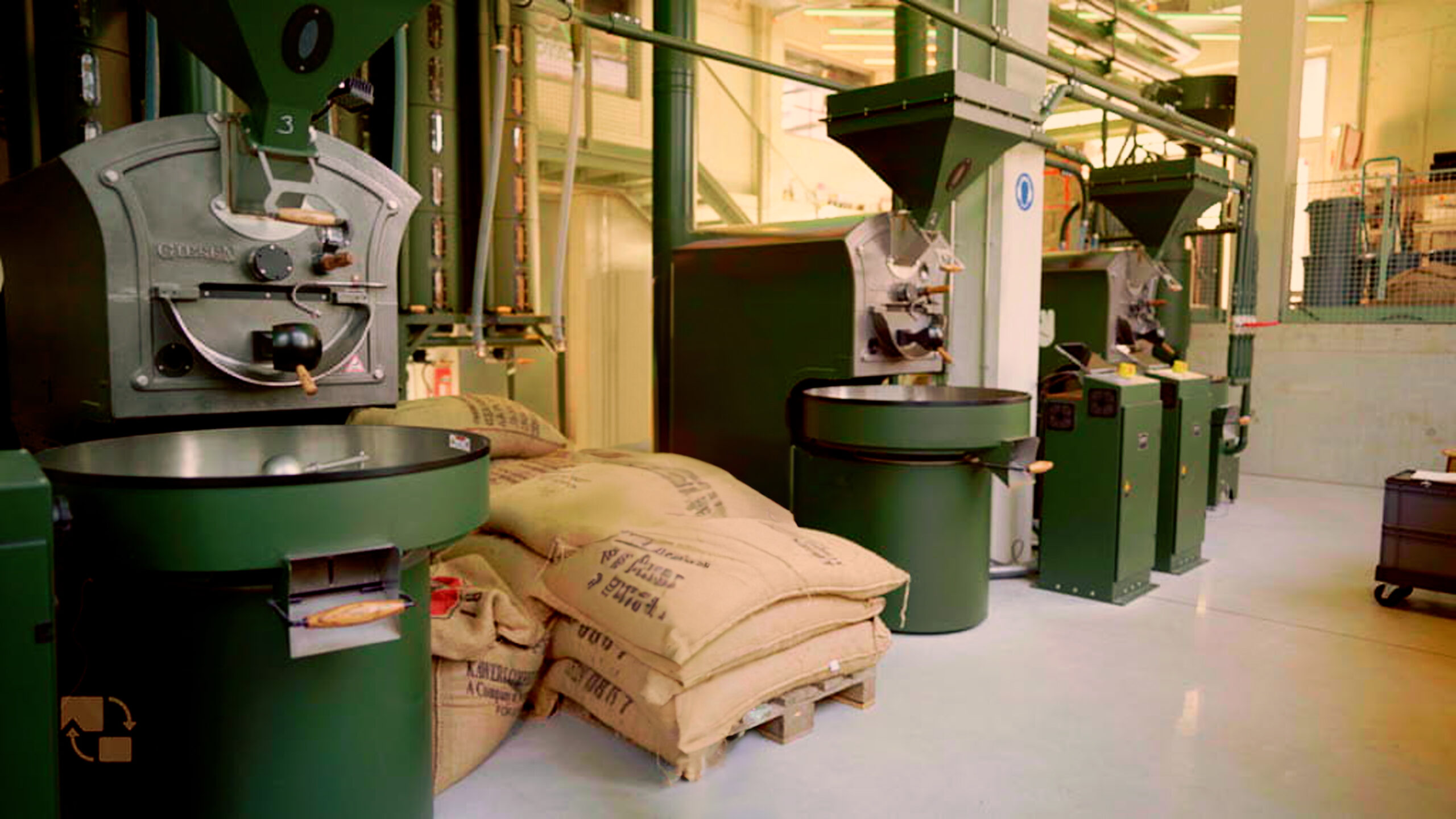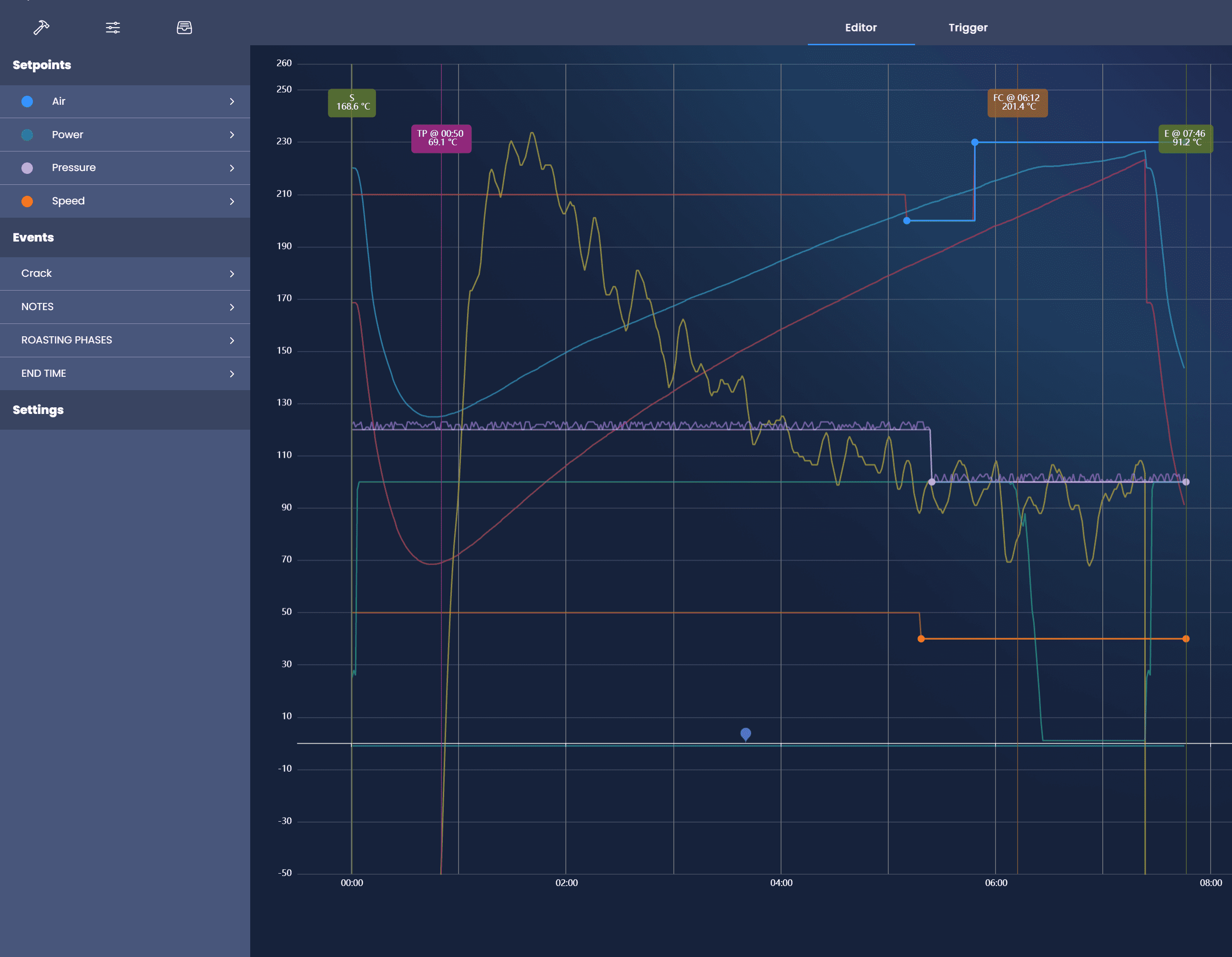In the article ‘Waste management: focus on sustainability’, various tips and techniques for reusing used coffee grounds were discussed. Coffee grounds are a valuable resource that can be reused in a variety of ways. Not only do they add flavor to your morning cup of coffee, but they can also be used in gardening, beauty, and cleaning applications. This article delves further into the different ways in which you or your customers can utilize used coffee grounds. Additionally, you can download an overview of these methods for reference.
Artwork
Used coffee grounds can serve as a natural dye for various arts and crafts projects. The stain imparted by the coffee grounds can add a unique and special effect to your artwork. Additionally to this, it can be used as a natural dye. Or create a piece of art like the image on the right.
In the garden
First and foremost, coffee grounds can be used as a fertilizer for plants. The grounds are rich in nitrogen, phosphorus, and potassium, which are essential nutrients for plant growth. They can also improve soil structure and aeration and can help to retain moisture in the soil. To use coffee grounds as a fertilizer, simply mix them into the soil around your plants or add them to your compost pile. Additionally, coffee grounds can be used to deter pests such as slugs and snails, which are known to dislike the acidity of the grounds.
In the kitchen
Used coffee grounds have natural odor-eliminating properties. To remove any unwanted odors from your refrigerator, simply place a small bowl of the grounds in the back. The coffee grounds can also be utilized to eliminate smells from the skin. After handling garlic, for example, use a tablespoon of ground coffee on your hands and rinse to remove any lingering odor.
Not only can they be used for odor elimination, but coffee grounds can also be incorporated into various recipes and dishes. They can also be used to remove food stains from cookware and bring back its shine. As a bonus, adding coffee grounds to abrasive kitchen cleaners can enhance their effectiveness.
At home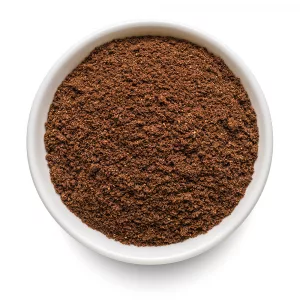
Another way to repurpose used coffee grounds is by making homemade candles with a coffee aroma. Once lit, the candle will emit a delightful coffee scent.
Coffee grounds can also serve as an eco-friendly alternative for de-icing driveways. They possess similar qualities to salt and sand, but won’t harm the environment.
Cleaning with coffee grounds is a great way to repurpose them. The abrasive texture of the grounds makes them effective at eliminating tough stains and grime. They can be used to clean pots and pans, remove built-up grease on grills and ovens, and even polish silverware.
Cleaning
Coffee grounds can be used to clean and unclog pipes due to their abrasive properties. They can effectively scrub away any buildup in your drains.
The used coffee grounds can also be used for cleaning your fireplace. Sprinkle the grounds over the ashes, this will help to weigh them down and prevent ash clouds from forming.
Clothing
Dye your clothing with coffee grounds. Dying your light fabric clothes with coffee gives a nice sepia effect.
Download
Download the overview for reusing used coffee grounds here. To ensure you don’t forget, hang it up or keep it on your desk as a reminder to not waste coffee grounds.
Conclusion
In conclusion, used coffee grounds are a valuable resource that can be reused in a variety of ways. From gardening and beauty, to cleaning and more, there are many ways to take advantage of the benefits of this versatile material. So the next time you finish a cup of coffee, don’t throw away the grounds – reuse them instead!

